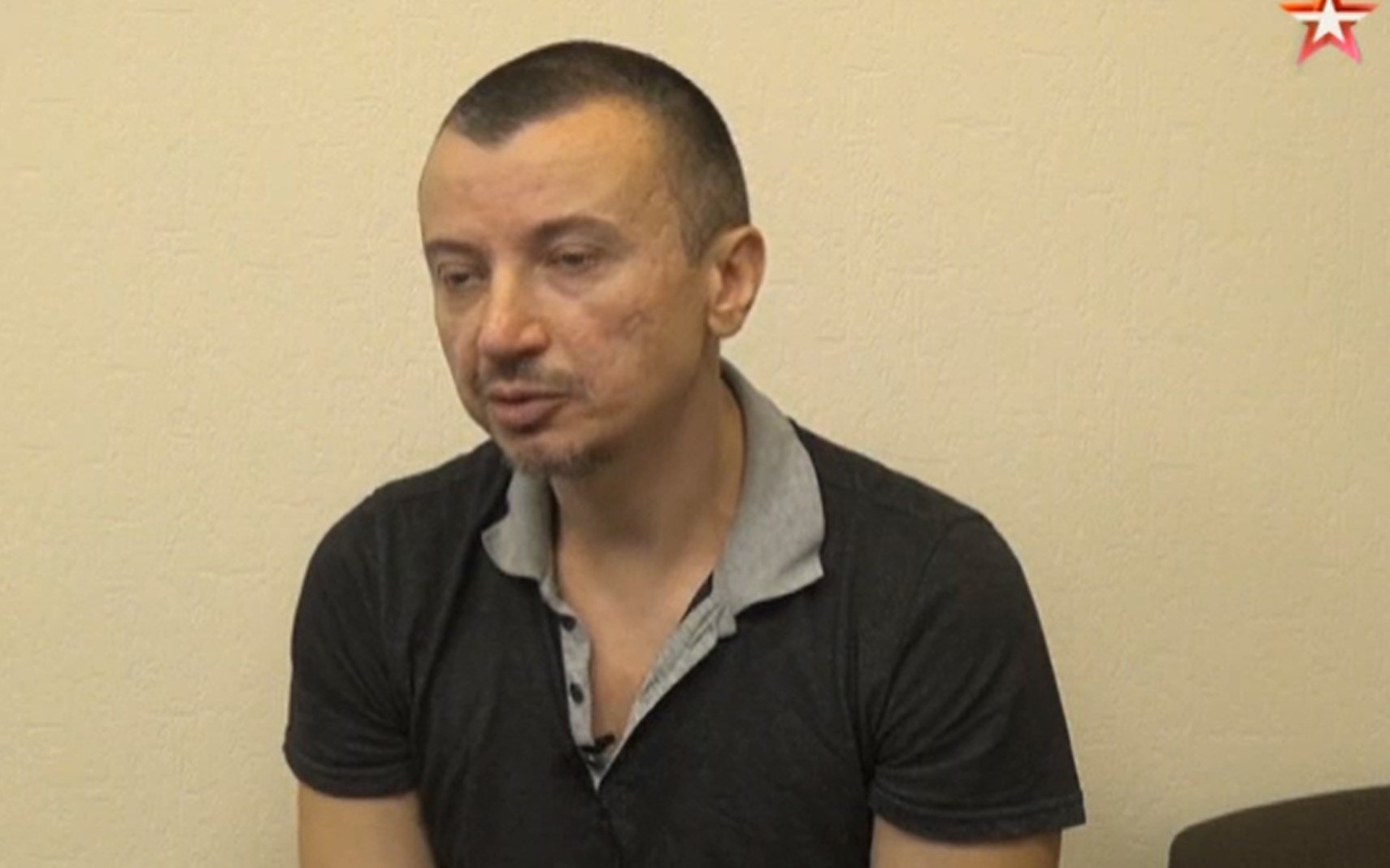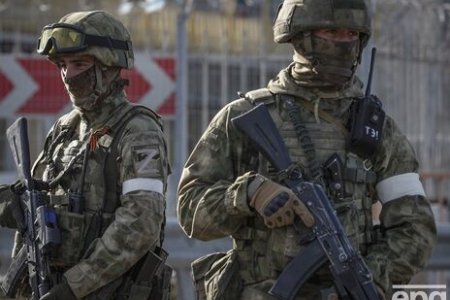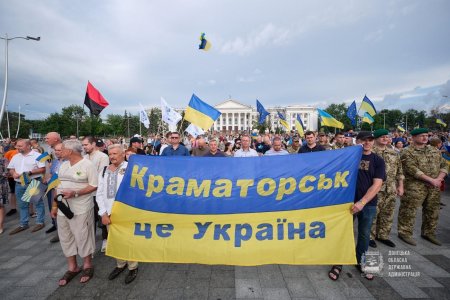
Oleksandr Pohorielov, a Ukrainian hostage imprisoned in Russia’s proxy ‘Donetsk people’s republic’ [‘DPR’] since late 2017, is about to got ‘on trial’ in Russia accused of a killing that took place after he was taken hostage. By charging him under Russian legislation and holding the resulting stunt at the Southern District Military Court in Rostov-on-Don, Moscow is acknowledging its responsibility for the abductions, torture and illegal imprisonment of Ukrainian civilians in occupied Donbas long before it claimed that the area had ‘voted to join’ Russia. In a further déjà vu from Stalin era ‘trials’, the ‘prosecution’ has decided to blame Pohorielov for another, earlier, killing, with it, in fact, likely that at least one, if not both, of these killings were organized on Moscow’s orders.
Russia’s state press agency TASS reported on 29 August that Oleksandr Pohorielov is now accused not only of killing Aleksandr Zakharchenko, Russian-installed ‘DPR leader’, on 31 August 2018, but also Russian mercenary, Arsen Pavlov, otherwise known as ‘Motorola’.
The report, while very short, contains numerous inaccuracies and distortions, including its reference to Zakharchenko as “the first leader of the ‘Donetsk people’s republic’. Zakharchenko, a Ukrainian by birth, was installed as ‘DPR leader’ on 7 August 2014, replacing the first Russian leaders, Alexander Borodai and Igor Grikin. Moscow clearly wanted the two out of occupied Donbas following the downing by a Russian Buk missile of Malaysian airliner MH17 and killing of all 298 adults and children onboard. Worth noting that Borodai, freshly ‘elected’ to Russia’s State Duma in 2021, quite openly admitted that they were removed to improve the optics. Russia was, after all, pushing its claim that there was ‘a civil war’ going on in Ukraine and that the ‘people of Donbas’ had risen in protest against Kyiv.
Zakharchenko was killed by a bomb explosion in the ‘Separ’ [‘Separatist’] restaurant in the very centre of Donetsk on 31 August. 2018. He was known to be very security-conscious, and the restaurant reportedly belonged to him. Since the bomb was planted in a lamp or chandelier, even if it was, as asserted, detonated by remote control, the person who planted the device must have been somebody who was viewed as trustworthy. As Zakharchenko was the only person killed outright, it was also likely that the person detonating the device knew exactly when he would be passing.
Predictably, both ‘DPR’ and their bosses in Moscow immediately claimed that Kyiv was behind Zakharchenko’s death. Moscow was still pretending that it was not in full control in ‘DPR’ and Russia’s Investigative Committee launched criminal proceedings under Article 361 § 3 of Russia’s criminal code (international terrorism). The Committee attempted to justify this by asserting that “such actions are also aimed against the interests of the Russian Federation in the sphere of countering terrorism”. By 3 September 2018, Russia’s FSB had already claimed that Ukraine’s Security Service [SBU] was probably behind it.
On 17 September 2018, Pohorielov was shown on Russian and Russian-funded television ‘confessing’ to planning to kill Zakharchenko on instructions from the SBU. At that stage, there was at least acknowledgement of the fact that Pohorielov was already imprisoned when Zakharchenko was killed. TV Zvezda, which is linked to Russia’s defence ministry, claimed, for example, that the so-called ‘DPR security ministry’ showed his interrogation after the killing in which he ‘confessed’ to an earlier attempt on Zakharchenko’s life, and that he had known about a second sabotage group planning another attack.
Judging by the recent TASS reports, Pohorielov’s quite indisputable alibi has been quietly forgotten. He is described as the “main suspect” and is seemingly accused of a ‘terrorist act’ resulting in death. Three other men are ‘on trial’: Artem Yen and Vasyl Churilov who are both charged with abetting terrorist activities and Oleksandr Tymoshenko (accused of planning espionage).
Pohorielov’s ‘confession’ was almost certainly extracted through torture, and he reels off the various parts of this story at a speed which suggests that he has been forced to learn it off by heart.
Russia is now claiming that Pohorielov was behind the killing in October 2016 of Russian mercenary Arsen Pavlov (Motorola). Typically, TASS is silent about Pavlov’s nationality and describes him as ‘commander of the insurgents’. ‘Motorola’ publicly boasted of war crimes, of having, for example, killed Ukrainian prisoners of war in cold blood. Since his death, Russia has tried to glorify him, and would nowhere admit to his having been a mercenary and war criminal. He too was known to be highly aware of security issues, and the chances of outsiders having got into his apartment block seem remote.
Near the end of 2021, Igor Girkin stated that it was Moscow that organized Zakharchenko’s killing, as he was not at easy to control as Denis Pushilin, who was installed in his place. He made a similar suggestion about the killers of Motorola in October 2020.
Russia appears to have dropped all pretence with the staging of this judicial farce against a Donbas hostage held prisoner since late November 2017. The near certainty that any ‘confession’ was obtained through torture is appalling, but scarcely new, with the FSB using such tactics very often against Ukrainian political prisoners seized In this case, such ‘confessions’ will presumably be used to gloss over the fact that Pohorielov was imprisoned and unable to have organized any killing.
By placing Pohorielov ‘on trial’ in a Russian court, and using Russian legislation, Russia is effectively confessing to what was always obvious, yet stubbornly denied. It is, ad always was, Russia who answered for the huge number of Ukrainians held hostage, and often savagely tortured, in Moscow’s proxy ‘republics’.



